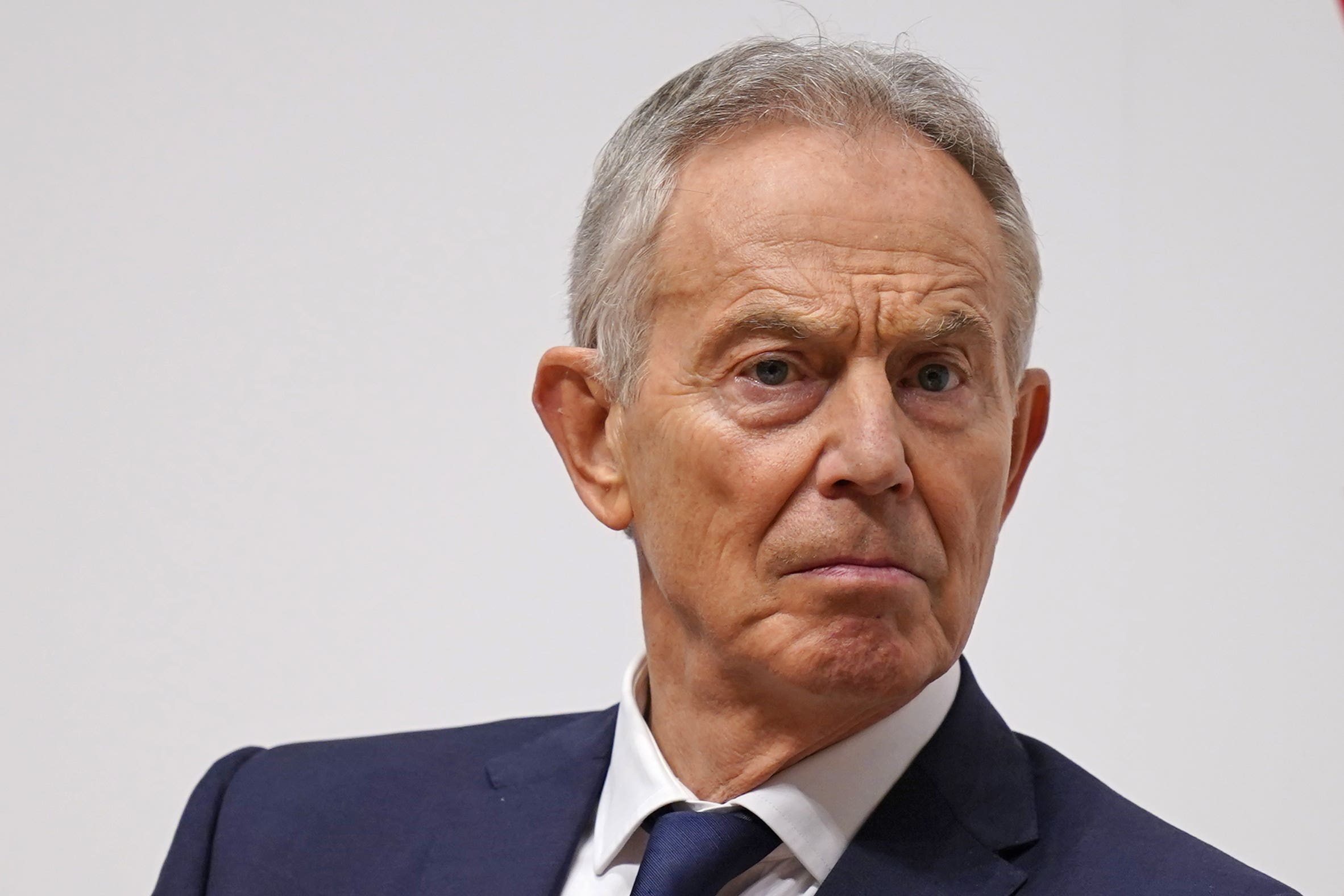Blair warns leaders to ‘get to grips’ with AI as ‘it will change everything’
The former Prime Minister said the new technology would affect everything from business to how public sector services were run.

Your support helps us to tell the story
From reproductive rights to climate change to Big Tech, The Independent is on the ground when the story is developing. Whether it's investigating the financials of Elon Musk's pro-Trump PAC or producing our latest documentary, 'The A Word', which shines a light on the American women fighting for reproductive rights, we know how important it is to parse out the facts from the messaging.
At such a critical moment in US history, we need reporters on the ground. Your donation allows us to keep sending journalists to speak to both sides of the story.
The Independent is trusted by Americans across the entire political spectrum. And unlike many other quality news outlets, we choose not to lock Americans out of our reporting and analysis with paywalls. We believe quality journalism should be available to everyone, paid for by those who can afford it.
Your support makes all the difference.Tony Blair has warned that governments and businesses need to “get to grips” with artificial intelligence (AI) as the emerging technology is set to “change everything”.
The former prime minister discussed the governance challenges that AI posed at a Chatham House event on Wednesday, alongside Microsoft president Brad Smith and British Chamber of Commerce head Baroness Martha Lane Fox.
The group compared the technology to the printing press and the industrial revolution in terms of how they thought it would change history.
How you understand, master and harness this technology revolution will define the place of this country and shape the world
“You can get the magnitude of that from these analogies of what we’re talking about. I think this will change everything,” Mr Blair told the think-tank audience.
“I think this is where we’re at – at the start of a revolutionary change.”
Mr Blair said that people, particularly on the centre-left of politics, could prioritise other difficulties amid the current turmoil but that they needed to make AI their mission.
“How you understand, master and harness this technology revolution will define the place of this country and shape the world,” he said.
The thing in all of this that I think makes a large constituent of people very, very anxious is about the increasing inequalities that are going to be, in my opinion, inevitable out of this
“So get your head around that and stop spending time thinking about: ‘A little bit more on tax, a little bit less on tax, more on spending, a little bit less on spending’.
“That is not what the future is going to be about. It’s going to be about this – understanding it and dealing with it, access(ing) the opportunity … but mitigating its risks.”
The panel also spoke about how the UK needed to respond to the safety and social risks that AI posed, including the evolution of a two-tiered society, job losses, election interference, Russia’s superiority in cyberwarfare and the creation of bioweapons.
Baroness Lane Fox said: “The thing in all of this that I think makes a large constituent of people very, very anxious is about the increasing inequalities that are going to be, in my opinion, inevitable out of this.”
She later added that there had to be a “joined-up approach” in how companies and governments thought about these risks.
Those in leadership positions who were not getting to know this new technology were also committing a “dereliction of duty”, she added.
What the world needs to see emerge in effect, is a new paradigm for how to manage the safety of this new technology
“If you don’t understand what’s possible, you’re not going to be able to start to understand how to learn what the right policy decisions to make (or) what’s the right commercial decisions to make.”
Mr Smith added: “What the world needs to see emerge in effect, is a new paradigm for how to manage the safety of this new technology.”
He said the international community needed to come to a consensus on how to standardise regulations around AI as soon as possible.
Mr Blair also said the UK Government, which had ambitions for the country to be a leader in the field, must recognise that the technology was “changing very fast” and that Britain would need to have “close co-operation and partnerships with other key players”.
“Everyone’s on this,” Mr Blair said. “You go to Paris, Macron’s talking about it. You go to Germany, Scholz is talking about it. You go to Africa, they’re starting to talk about it.
“You’re either going to get to grips with this or you’re going to get left behind.”